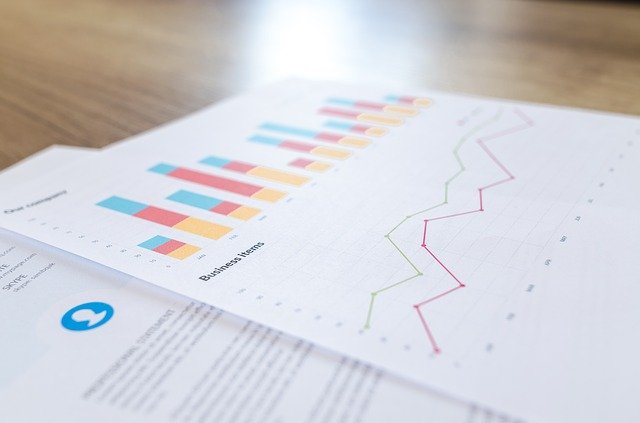However, it is equally important to measure the effectiveness of your marketing efforts to ensure that your investment is paying off.

I understand the crucial role that marketing plays in higher education. Marketing efforts can attract prospective students, build a positive brand image, and generate revenue for institutions. However, it is equally important to measure the effectiveness of your marketing efforts to ensure that your investment is paying off.
Measuring the effectiveness of your higher education marketing efforts can provide valuable insights into what is working and what needs improvement.
By analyzing data and metrics, you can optimize your marketing strategy to achieve better results and maximize your return on investment.
In this article, I will cover the main points that will help you measure the effectiveness of your higher education marketing efforts.

These include identifying key performance indicators, tracking website analytics, analyzing social media engagement, evaluating lead generation and conversion rates, and measuring brand awareness and reputation.
According to a report by Hubspot, only 32% of higher education marketers feel confident in their ability to measure the ROI of their marketing efforts.
By implementing the strategies outlined in this article, you can join the ranks of successful education marketers who can confidently measure and optimize the effectiveness of their marketing campaigns.
Set SMART goals
Setting SMART goals is a crucial step in measuring the effectiveness of your higher education marketing efforts. SMART goals are Specific, Measurable, Achievable, Relevant, and Time-bound.

By setting SMART goals, you can ensure that your marketing efforts are focused, measurable, and aligned with your institution’s overall objectives.
Specific goals outline exactly what you want to achieve, while measurable goals establish clear metrics for success.
Achievable goals are realistic and feasible, while relevant goals align with your institution’s mission and values. Time-bound goals establish a clear timeline for achieving your objectives.
Here are some examples of SMART goals for higher education marketing efforts:
- Increase website traffic by 20% over the next six months through targeted SEO and PPC campaigns.
- Generate 100 new leads per month through targeted social media advertising and email marketing campaigns.
- Increase student retention rates by 5% by implementing a comprehensive student support program and promoting it through targeted digital marketing campaigns.
- Increase online course enrollment by 10% over the next quarter through targeted email marketing campaigns and social media advertising.
- Increase brand awareness by 30% through a comprehensive content marketing strategy, including blog posts, infographics, and videos, over the next year.
According to a report by the Content Marketing Institute, 81% of higher education marketers use website traffic as a key metric for measuring the effectiveness of their marketing efforts. Other commonly used metrics include lead generation, social media engagement, and brand awareness.
By setting SMART goals, you can establish clear targets for each of these metrics and track your progress over time. This can help you identify what is working and what needs improvement, and optimize your marketing strategy accordingly.
Define key performance indicators (KPIs)
Defining key performance indicators (KPIs) is a critical step in measuring the effectiveness of your higher education marketing efforts.

KPIs are specific metrics that track progress toward your marketing goals and objectives. They provide valuable data that can be used to optimize your marketing strategy and improve your ROI.
KPIs are important because they help you focus on what matters most in your marketing efforts. By tracking specific metrics, you can identify areas that need improvement and make data-driven decisions to optimize your campaigns.
KPIs also provide a way to measure success and demonstrate the value of your marketing efforts to key stakeholders.
Here are some examples of KPIs that are relevant for higher education marketing efforts:
Website traffic: This measures the number of visitors to your website, which is a key indicator of your online visibility and brand awareness. You can track overall website traffic, as well as traffic from specific sources such as organic search, social media, and paid advertising.
Conversion rate: This measures the percentage of website visitors who take a specific action, such as filling out a contact form or downloading a brochure. By tracking conversion rates, you can identify areas of your website that need improvement and optimize your lead generation strategy.
Cost per lead: This measures the amount of money you spend to generate a single lead. By tracking this metric, you can identify the most cost-effective marketing channels and optimize your budget accordingly.

Student retention rate: This measures the percentage of students who continue their studies after the first year. By tracking retention rates, you can identify areas where students may need additional support and improve your overall student experience.
Social media engagement: This measures the level of interaction and engagement on your social media channels, such as likes, comments, and shares. By tracking social media engagement, you can identify which types of content resonate with your audience and optimize your social media strategy.
According to a report by the Education Marketing Association, the top KPIs for higher education marketing include website traffic, lead generation, conversion rates, and student enrollment.
By defining and tracking these KPIs, you can measure the effectiveness of your marketing efforts and optimize your strategy for success.
Use analytics tools to measure performance
Analytics tools are essential for measuring the effectiveness of your higher education marketing efforts. These tools provide valuable data and insights that can help you optimize your campaigns and improve your ROI.

Here are some of the top analytics tools that can be used to measure marketing performance:
Google Analytics: This is a free tool that provides detailed information about your website traffic, including the number of visitors, their location, and the pages they visit. It also tracks conversions, such as form submissions and brochure downloads, and provides insights into user behavior and engagement.
HubSpot: This is an all-in-one marketing platform that includes a range of analytics tools, such as website analytics, email tracking, and social media analytics. It also provides insights into lead generation and sales performance, making it a powerful tool for measuring overall marketing ROI.
Adobe Analytics: This is a comprehensive analytics tool that provides in-depth insights into website traffic, customer behavior, and campaign performance. It includes advanced features such as machine learning and predictive analytics, making it a powerful tool for optimizing marketing campaigns.
Google Analytics is one of the most widely used analytics tools for measuring website traffic and conversions. Here’s how to use it to measure your higher education marketing performance:

Set up your Google Analytics account: Create a Google Analytics account and install the tracking code on your website. This will allow you to track website traffic and user behavior.
Set up goals: Goals are specific actions that you want visitors to take on your website, such as filling out a contact form or downloading a brochure. By setting up goals in Google Analytics, you can track how many visitors complete these actions and measure your conversion rate.
Use the Acquisition report: The Acquisition report in Google Analytics provides information about how visitors are finding your websites, such as through organic search, social media, or paid advertising. This can help you identify which marketing channels are driving the most traffic and optimize your campaigns accordingly.
Use the Behavior report: The Behavior report in Google Analytics provides information about how visitors are interacting with your website, such as which pages they visit and how long they stay. This can help you identify areas of your website that may need improvement and optimize your user experience.
By using analytics tools such as Google Analytics, you can measure the effectiveness of your higher education marketing efforts and optimize your campaigns for success.
Analyze data and adjust marketing efforts
Analyzing the data collected from analytics tools is essential for measuring the effectiveness of your higher education marketing efforts.

By analyzing the data and adjusting your marketing efforts accordingly, you can optimize your campaigns for success and achieve your marketing goals.
Here are some steps you can take to analyze your data and adjust your marketing efforts accordingly:
Review your KPIs: Look at the key performance indicators (KPIs) you have set for your marketing campaigns and analyze how well you are performing against them. If you are falling short of your goals, identify the areas where you need to improve and adjust your marketing strategies accordingly.
Identify trends and patterns: Use analytics tools to identify trends and patterns in your data, such as which pages on your website are attracting the most traffic, which channels are driving the most leads, and which campaigns are generating the highest conversion rates. This can help you identify areas where you can optimize your marketing efforts and improve your ROI.
Segment your audience: Use analytics tools to segment your audience based on demographics, behavior, and other factors. This can help you tailor your marketing messages and campaigns to specific groups of people, increasing the effectiveness of your overall strategy.
A/B test your campaigns: Use A/B testing to test different variations of your marketing campaigns and messages. This can help you identify which approaches are most effective and optimize your campaigns for maximum impact.
Based on the data analysis, here are some tips on how to adjust your marketing efforts:

Refine your targeting: Use the data to refine your audience targeting and focus on the channels and campaigns that are generating the most leads and conversions.
Improve your messaging: Use the data to refine your messaging and tailor it to specific groups of people. This can help you increase engagement and improve your conversion rates.
Optimize your website: Use the data to identify areas of your website that need improvement and optimize your user experience to increase engagement and conversions.
Adjust your budget: Use the data to adjust your marketing budget and allocate resources to the channels and campaigns that are generating the best results.
To Conclude
Measuring the effectiveness of your higher education marketing efforts is essential for achieving your marketing goals and improving your ROI.
By setting SMART goals, defining key performance indicators, using analytics tools to measure performance, analyzing data, and adjusting marketing efforts accordingly, you can optimize your marketing strategies for success.
The importance of measuring marketing effectiveness cannot be overstated. It allows you to identify what is working and what is not, and adjust your marketing efforts accordingly to achieve better results.
By continually analyzing data and adjusting your strategies, you can stay ahead of the competition and improve your marketing ROI.



Pingback: The Impact of Internationalization on Higher Education Marketing
Pingback: The Ethics of Data Collection in Higher Education Marketing
Pingback: World Youth Skills Day Shines Light on Skilling Teachers & Trainers